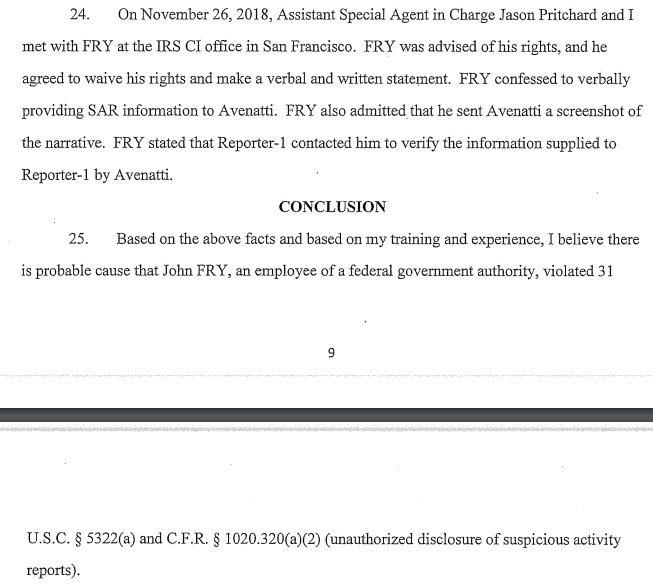
Getty IRS analyst John Fry charged with leaking Michael Cohen bank record information.
John Fry is an Internal Revenue Service analyst charged with leaking confidential information about former Donald Trump lawyer Michael Cohen’s bank records, according to charging documents filed in California.
Fry is charged with the unauthorized disclosure of suspicious activity reports by the US Attorney’s Office for the Northern District of California, the criminal complaint says.
Fry is accused of leaking suspicious activity reports related to Cohen. Banks file suspicious activity reports to the Treasury Department for any transactions that may be illegal.
Attorney Michael Avenatti revealed the details last May, detailing numerous payments Cohen received from a company linked to a Russian oligarch, the pharmaceutical company Novartis, and AT&T.
According to the court filing, Fry admitted to leaking the information to Avenatti and speaking with reporter Ronan Farrow for an article.
Here’s what you need to know:
1. John Fry is an Investigative Analyst For The IRS’ Criminal Investigation Division
According to an affidavit filed by prosecutors, Fry is an investigative analyst for the IRS’s Criminal Investigation Division, the agency’s law enforcement arm.
Fry has been with the IRS since 2008. He worked at the agency’s San Francisco office.
“His current responsibilities include supporting IRS Agents in the Northern District of California and reviewing SARs for activity that could potentially lead to a criminal investigation,” US Treasury Department Special Agent Linda Cieslak said in the affidavit. “In this position, he has access to various law enforcement databases, included FinCEN, Palantir, which is an analytic software used by CI to integrate investigative data from multiple internal and external data sources, and the Integrated Data Retrieval System (IDRS), which is a database containing tax information.”
2. Fry is Accused of Leaking Suspicious Activity Reports About Cohen Payments
According to the Treasury Department, Fry logged into the Palantir database in May of 2018 and downloaded five suspicious activity reports (SARs) related to Cohen.
One SAR revealed that Cohen, who was then President Trump’s personal attorney, received “numerous suspicious payments,” the Treasury Department said.
The SAR revealed that Cohen received $150,000 from Korea Aerospace Industries, $200,000 from AT&T, and $500,000 from Columbus Nova, which is linked to a Russian oligarch who donated money to Trump’s inaugural fund, the Treasury Department said.
The Treasury Department identified three other SARs.
“The suspicious activity across the three SARs which occurred from October 2016 to January 2018 totaled $4,425,033.46,” the Treasury Department said.
3. Fry Leaked the Information to Michael Avenatti, Investigators Say
After Fry downloaded the SARs, the Treasury Department told the court, he placed two calls to a number associated with attorney Michael Avenatti.
Shortly after the calls, he logged on to the FiNCEN database to search for files related to Cohen, including his driver’s license and personal bank account numbers.
He placed another call to Avenatti before the attorney published a memo detailing the payments received by Cohen.
In an interview with The Washington Post, Avenatti declined to reveal where he got the information.
4. Fry is Also Accused of Speaking With Ronan Farrow
Days after Avenatti published the memo, Fry placed a 42-minute call to an unidentified reporter and continued to exchange text messages with the reporter for weeks, according to the court filing. The reporter was apparently Ronan Farrow, who published an article about the motive behind the leak of Cohen’s records.
“Let’s all keep talking about the full reveal of your story, and I will keep you updated on the more immediate story about the missing SARs where I’m quoting you anonymously in the mean time,” Farrow wrote to Fry, according to the affidavit.
“I assume you noticed the Inspector General said they’re looking into how the info got out, so maybe another point in the ‘pro’ column for coming out guns blazing to get ahead of this,” another message to Fry said.
In another exchange, Fry agreed to speak with Farrow by phone about an article.
According to the affidavit, Fry had “grown alarmed after being unable to find two important SARs regarding Cohen’s financial activity in a government database.”
“Thank you thank you thank you,” Fry wrote to Farrow after the article was published. “Beautifully written, as I suspected it would be.”
5. Fry told Ronan Farrow He Leaked The Info Out of Concern
Fry was identified in Farrow’s article in The New Yorker as a career law enforcement official with the Treasury Department’s Financial Crimes Enforcement Network.
“I have never seen something pulled off the system,” Fry told Farrow. “That system is a safeguard for the bank. It’s a stockpile of information. When something’s not there that should be, I immediately became concerned. That’s why I came forward.”
“This is a permanent record. They should be there,” he said. “And there is nothing there.”
“We’ve accepted this as normal, and this is not normal,” he continued. “Things that stand out as abnormal, like documents being removed from a system, are of grave concern to me.”
According to the court filing, the SARs were unavailable because they were protected due to an ongoing investigation.
“To say that I am terrified right now would be an understatement,” Fry told Farrow at the time. “This is a terrifying time to be an American, to be in this situation, and to watch all of this unfold.”
READ NEXT: WATCH: Vans Employee Fired for Cursing at Teen in MAGA Hat
